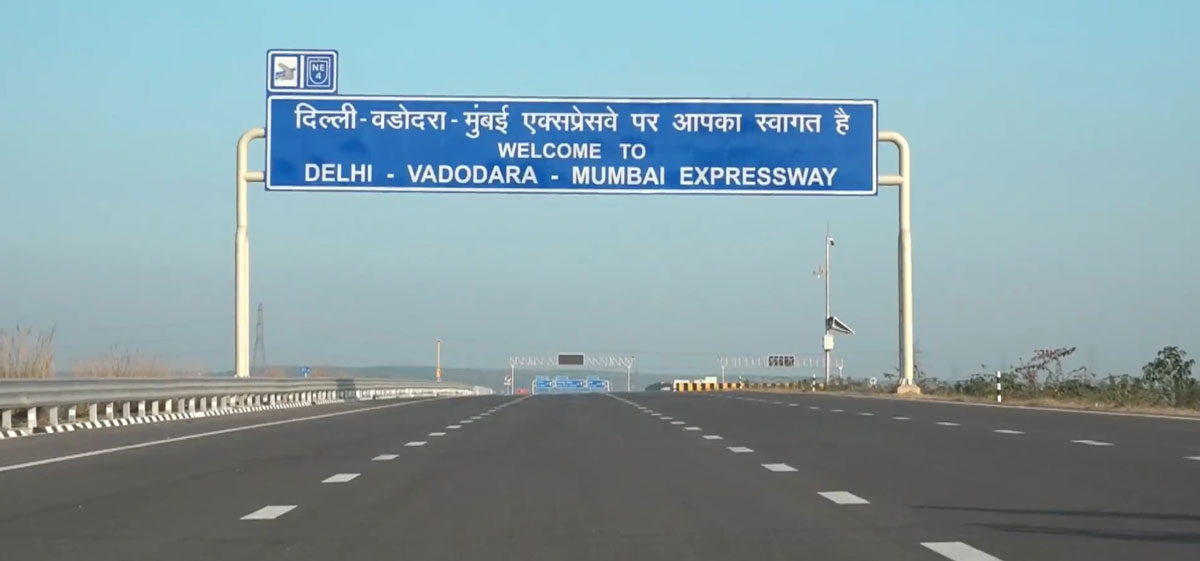The highly anticipated Delhi-Mumbai Expressway is all set to be inaugurated by Prime Minister Narendra Modi in the presence of Union Minister for Road Transport and Highways, Nitin Gadkari. It is expected that the Expressway will revolutionise travel between Delhi and Mumbai and provide a much-needed boost to the real estate market in the surrounding area. The Expressway is also anticipated to have a significant impact on the economic growth of the region as a whole by creating numerous employment opportunities and attracting businesses and investors.
The expressway has been designed with world-class features, including RFID tags, automatic toll collection, and CCTV monitoring. These features are anticipated to make the Expressway safer and more convenient for travellers while also attracting more residents and investors to the area. The projected reduction in travel time between Delhi and Mumbai from the current 18 to 20 hours to just 12 hours is a major selling point for the expressway. This reduction in commuting time will make it easier for people to transit between the two cities, leading to an increase in demand for residential and commercial properties in the area.
Vivek Singhal, CEO, Smartworld Developers, said, "The completion of the Delhi-Mumbai Expressway is a watershed moment for the Delhi and NCR real estate markets, especially Gurgaon, firmly placing it as a gateway to the future development corridor of the country. The country’s longest 1,390-km highway will pave the way for more accessible, sustainable, and infrastructure-backed growth in the states it passes through. It will also help extend systematic investment opportunities into business parks and clusters, large scale logistic parks to promote exports and trade, and new townships in its proximity. Along with this, the commissioning of the Delhi-Mumbai Industrial Corridor, the Western Dedicated Freight Corridor, and the completion of the three highways—NH48, Kundli-Manesar-Palwal Expressway, and Dwarka Expressway—will drastically change the real estate landscape of Gurgaon in an unparalleled way.
He also added that "More than 160-km-long stretch of the new Delhi Mumbai expressway passes via Haryana, which will likely spur overall economic growth as well as the demand for housing and commercial space, especially in Sohna. Furthermore, when the proposed connectivity to the Jewar airport in Uttar Pradesh becomes operational, Sohna's potential as a real estate hub will be enhanced.
The increased connectivity and reduced travel time will make it easier for businesses to operate between Delhi and Mumbai, leading to an increased demand for commercial and industrial properties in the area. The expressway is also expected to give the tourism and hospitality industries in the area a much-needed boost. It will make it easier for tourists to travel between the two cities and give them more choices for where to stay and eat.
“The opening of the Delhi-Mumbai Industrial Corridor (DMIC) in Dausa, Rajasthan, is expected to boost the region's real estate sector by attracting new industries and businesses. This will increase demand for commercial and residential properties, resulting in real estate growth and development.
Furthermore, the development of infrastructure and transportation facilities in the region will improve overall living conditions, making it a more appealing location for people to live and work, driving demand for real estate even higher” said Rahul Singla, Director, Mapsko Group
The expressway is also expected to have a positive impact on the logistics industry in the region, reducing operational time and making it easier for goods to be transported between Delhi and Mumbai. This will increase the need for warehouses and storage spaces in the area, which will help the real estate market as a whole.
Adding to this, Shashank Vashishtha, Executive Director, eXp India, commented, "Location is the key to success in the real estate sector, and the Delhi-Mumbai Expressway is set to revolutionise the way people live and work by providing seamless connectivity between two of India's largest cities. This improved connectivity will lead to increased demand for residential and commercial property and create new investment opportunities, job openings, and economic growth. Furthermore, the increased demand for properties along the route will drive up prices, providing those who have invested in these properties with the potential for great capital appreciation. Truly, the Delhi-Mumbai Expressway is a remarkable infrastructure project, poised to bring about a new era of growth and development in the real estate sector."
Overall, the inauguration of the Delhi-Mumbai Expressway is a major milestone for India and is expected to have a significant impact on the real estate sector in the surrounding areas. The expressway is expected to provide a much-needed boost to the economy, provide employment opportunities, and make it easier for people and businesses to operate between Delhi and Mumbai. The highway shows that the Indian government is working hard to improve infrastructure and give its people a better quality of life.





















